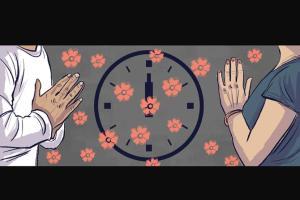It is a relief to be liberated from the anxiety of vigilance that travel now requires, even while the anxiety of falling sick or making others sick remains.

Illustration/Uday Mohite
![]() With each message about corona cancellations, a flower of relief blooms in my chest. It is a relief to be liberated from the anxiety of vigilance that travel now requires, even while the anxiety of falling sick or making others sick remains.
With each message about corona cancellations, a flower of relief blooms in my chest. It is a relief to be liberated from the anxiety of vigilance that travel now requires, even while the anxiety of falling sick or making others sick remains.
ADVERTISEMENT
But it is also the relief of an unexpected luxury—of time, feeling plush as velvet filling both (well-washed) hands, instead of like sand running through your fingers. As the coronavirus compels us to confront many truths about our economies, our public health system, our community sentiments and social attitudes, it may also lead us to reconsider our relationship with time, which is symbolic of our relationship with all of those things.
I think our relationship with time reveals our essential selves. My friend H has a wanton approach to time and can spend long hours doing labour intensive things, or simply hanging out. It's as if she believes time will always be present, as if someone would always love and care for you—or perhaps she is testing these things. Regimenting time makes her fractious and passive-aggresive. My friend S, has a confident relationship with time, never procrastinating, able to make small pockets of pleasure even in stress, make time for others and herself, easily exchanging love. This disrupted, she becomes resentful and self-pitying. My friend L relates to time as if it were a foreign language she cannot decipher. In the odd phrases/phases when it becomes clear, her face shines, her relationships are peaceful.
My own relationship with time is of an audience. I am good at filling it with things to do, but wait for it to reveal its meanings, to take me down uncertain, if picturesque, paths. This is why my loves are often complicated, because I wait for them to reveal their nature rather than define the relationship (not smart, I agree). Allowed to exist in this childlike sensuality, I am cheerful and receptive. Asked to account for time, I become self-hating and non-committal.
We intertwine with each other's timing, sometimes harmoniously, sometimes uneasily. But, we also exist in a larger idea of what time is supposed to be. Virtuality creates an illusion of doubled time, online and offline. Our relationships with time is increasingly synchronised to this endless scroll. It is measured in productivity, so dream time must instantly lead to action time, a poem instantly be a revolution, an experience be explained as it happens. All selves must be simultaneously functioning—the functional, the political, the sensual—and be recordable, measurable, visible, viable. In other words, as all social endeavour becomes a gigantic conceptual quest for virality, our vitals are constantly being monitored. Time seems endless, yet never enough. In a singular meaning of time we feel more in competition than in concert; constantly connected, yet somehow alone, a meaningless isolation.
The idea of an individual relationship with time and through it divergent relationships with the world, becomes increasingly tenuous and we find ourselves sometimes lost to ourselves. The race against the coronavirus time, is also creating a stilling of other time, a meaningful isolation, for others as much as ourselves, suggesting a different potential for connection. As we no longer put work first, which we falsely imagine as putting ourselves first, time's meaning has opened up for re-interpretation. There is still time before we might know what it means.
Paromita Vohra is an award-winning Mumbai-based filmmaker, writer and curator working with fiction and non-fiction. Reach her at [email protected]
Catch up on all the latest Crime, National, International and Hatke news here. Also download the new mid-day Android and iOS apps to get latest updates
 Subscribe today by clicking the link and stay updated with the latest news!" Click here!
Subscribe today by clicking the link and stay updated with the latest news!" Click here!






